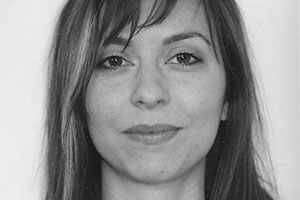
Izzy Mant
Izzy Mant is a producer of television scripted comedy, as well as a writer and comedian. As a producer her credits include GameFace (2017) (2019), Cuckoo (2012), starring Andie Macdowell (2019), The Windsors (2016) (2016-2017), and Peep Show (2003) (2008)
Here she passes on some tips for working in radio.
Working in Radio
Most actors I know find radio drama very appealing – not just because you don’t have to learn your lines or brush your hair – but also because it offers the opportunity to get to grips quickly with a wide variety of plays & roles, and to work with great casts. It’s true that radio drama is a lot of fun. It’s also a really inspiring place, where the power of sound alone can create worlds of imagination for the listener. Coming from theatre, I found it fascinating to discover how much you can do with radio that I’d never thought possible.
My main tip for radio acting is to be aware of how intimate it is. Radio drama takes place inside the head of the listener, and can be very subtle and natural. I’ve had experiences where actors whose work I admire in theatre come into the radio studio and start declaiming to the microphone, as if the listeners are further away than the back row of the gods, and a little bit stupid. These are good actors and they always get it right in the end. All they need is to realise that realism, subtlety, and even silence work well on the radio, and there is meaning not just in the words but in a breath, a pause, a movement. It’s more like acting for film or TV than for the stage.
If you haven’t worked in radio before, there are a few technical things you need to know – though the director and studio manager will be able to help with these things. Action and movement is important to create drama and a sense of space, but be aware that a head turn away from the microphone can sound like you’ve moved to the other side of the room, and if you move a great distance between lines it can sound like you’ve ‘jumped’ from one place to another. However, more and more dramas are being recorded on location where you don’t have to worry about this sort of thing.
So, how do you get to work in radio? Radio plays are produced by the BBC and various independent radio production companies. At the BBC, actors are cast on a project-to-project basis by the producer.
Radio producers are most likely to discover new actors through seeing their work in theatre or TV, or by hearing their voice CD, with short extracts from various scenes or readings. If you’re making a voice CD, make sure it plays to your strengths. It should cover your range in terms of roles, styles and accents, but remember that a producer isn’t likely to cast you for your dodgy Welsh accent or unconvincing octogenarian, when they can get a real Welsh actor or eighty year old instead. Try to get a clear and good quality recording, but you don’t have to go to great expense having sound effects and backgrounds put on. Send your CD to Cynthia Fagan (BBC Radio Drama, Bush House, PO Box 76, Strand London WC2B 4PH) who circulates the best CDs she receives among radio producers.
The BBC has a small radio drama repertory company called The Radio Drama Company or RDC. The Radio Drama Company has between 8 and 12 actors on contract at any one time and actors are usually invited onto the Company because their work is well known from television and theatre etc. However, from August to February The RDC focuses on new acting talent which the BBC sources via the annual Carleton Hobbs Bursary Award competition. The Carleton Hobbs competition is open to final year drama students from accredited drama colleges and the winners receive a six month contract with the RDC.
This year BBC Radio Drama has launched another talent initiative called the Norman Beaton Fellowship. This fellowship has a particular interest in attracting actors from the Black, Asian and Far East Asian communities. For further information on this scheme call the information line on 0870 444 3900.
If you do get a job in radio drama, take along a pair of hard-soled shoes and an open mind. Most of my preconceptions about radio turned out to be wrong, and yours may well be, too. There’s such a wide variety of drama on radio that it’s hard to generalize about what you might experience. As a director, I’ve found working in radio fascinating. Every actor I know who’s done their first radio play has found it equally fascinating. And they always want to come back and do more.

